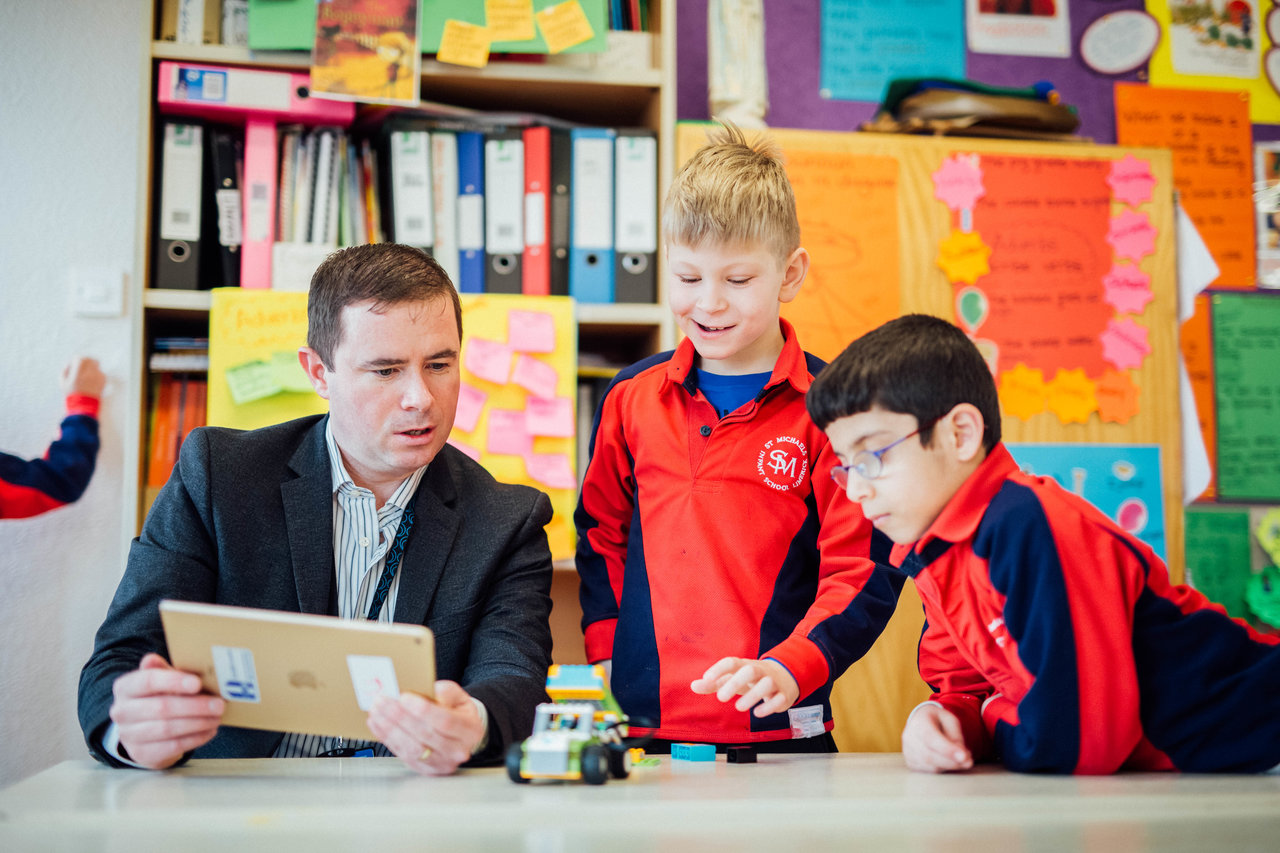

Education
MIC Continues to Address the Challenges of Learning Through LIT STEM Education
The LEGO Education Innovation Studio at Mary Immaculate College (MIC) continues to develop ways of addressing the challenges of the 21st Century Learning through LIT STEM Education.
MIC Continues to Address the Challenges of Learning Through LIT STEM Education
The LEGO Education Innovation Studio, based at Mary Immaculate College (MIC) continues to pioneer the way in addressing the challenges of 21st Century learning through exploring the potential of constructionist technological resources to meet curriculum objectives in areas such as Science, Technology and Maths.
Established in 2014 by the Curriculum Development Unit (CDU) in MIC, the LEGO Education Innovation Studio at MIC, was the first of its kind in a College of Education anywhere in Europe. Now, as part of a range of activities offered by the Department of LIT STEM Education in MIC, this innovative project sees the delivery of new modules on LEGO Education for primary teaching students who in turn introduce this teaching method in the various schools they go on to teach in. In addition, the project explores the potential of using ICT technologies to develop problem-solving and mathematical thinking.

No Repro Fee
Hands-on, Minds-on:
Ethan McInerney from St Michael’s Infant School pictured with MIC student teacher Aoife Conroy .For the past six weeks student teachers from Mary Immaculate College have been working with 11 local primary schools and some 240 primary pupils in exploring constructionist approaches to teaching and learning using LEGO WeDo 2.0 materials. The project is delivered through the LEGO Education Innovation Studio at MIC as part of the College’s STEM outreach programme.
Pic. Brian Arthur
To date, the project has worked with 50 schools and almost 1000 pupils across the mid-west. This year alone, in collaboration with the Transforming Education through Dialogue (TED) Project, MIC student teachers are working with 11 local schools and some 240 primary pupils to explore constructionist approaches to teaching and learning using LEGO WeDo 2.0 materials. This allows the pupils to bring their creations to life while sharpening computational thinking skills such as logical reasoning, decomposition, pattern recognition, abstraction and modelling simulations.
Speaking on the many merits of this innovative project Rory McGann, Dept. STEM Education, MIC said: “With a focus on creativity and collaboration, motivation and self-direction, improvisation and discovery, and interacting with meaningful tools that expand mental capacities, the initiative, now in its fifth year, is continuing to provide a unique ‘hands-on, minds-on’ experience that supports and enriches the entire learning process”.
A partnership earlier this year with Professional Development Service for Teachers (PDST) facilitated a consolidation and expansion of the project, addressing the embedding of effective practice at a whole-school level towards greater school ownership of their learning and improvement. According to Mr McGann “With expert input from PDST Digital Technology Advisors, it is intended that this partnership will accelerate the cross-fertilisation of ideas and sharing of technology-related practice across the continuum of teacher education, and further embed pre-existing collaborative practices between co-operating schools, third level sector, and existing support services with a particular emphasis on teaching and learning with technology, educational innovation in DEIS contexts, gender balance in STEM, and challenging stereotypical attitudes of same”.
Anthony Kilcoyne, Deputy Director for Digital Technologies in PDST suggests that “this partnership is an example of the rich reciprocal learning relationship that can exist between student teachers and the teachers in their placement schools. PDST supports schools to embed digital technologies in their everyday practice and this initiative aspires to capitalise on the learning conversations sparked by MIC students by developing and embedding this learning further in co-operating schools”.
In conclusion he said the project, LIT STEM Education, in line with key tenets of national documents such as the Digital Strategy for Schools (2015), STEM Report (2016) and Digital Learning Framework (2017), promotes a culture of improvement, collaboration, innovation and creativity in learning, teaching, and assessment while enhancing knowledge in science, mathematics and technology education.
Dr Ann Higgins, Acting Director of the CDU, acknowledged the importance of this initiative stating that “it is so very exciting that children have opportunities to develop a very broad range of skills through this initiative, which I believe will serve them very well as they progress through their school and life journeys”.
For more information on LIT STEM Education and MIC, click here
For more stories from I Love Limerick on Stem, click here




